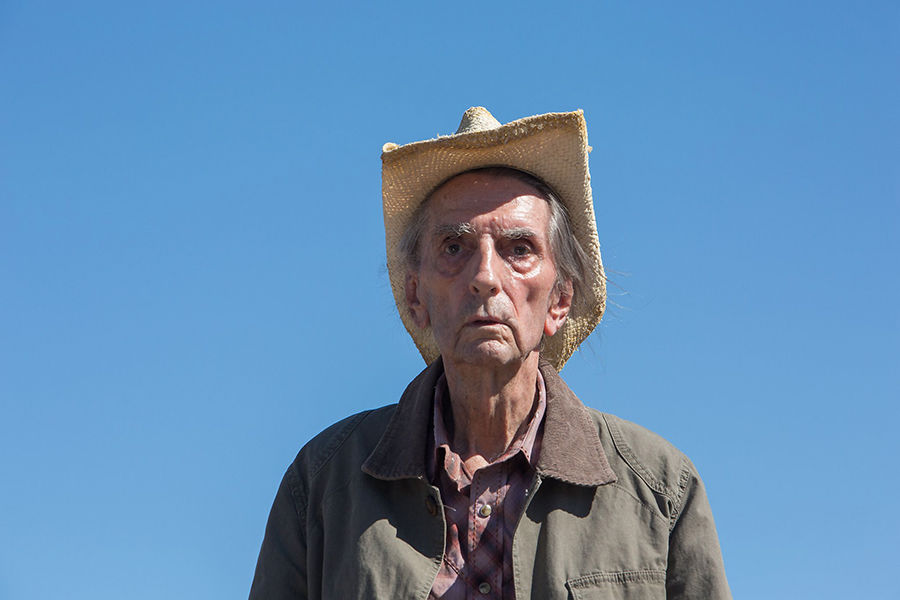The new film “Lucky,” featuring late veteran actor Harry Dean Stanton in a rare starring role as an old man searching desperately for meaning in his senior years, is being heralded as a brilliant character study marked by beautiful simplicity. Given Stanton’s recent passing (he died on Sept. 15), “Lucky” has been further elevated by many to the status of a bittersweet eulogy to an old friend.
“Lucky” was penned by Drago Sumonja and Logan Sparks, and directed with astounding patience by John Carroll Lynch. The story isn’t driven as much by events as it is by the titular Lucky’s internal struggles and spiritual journey. An atheist, the 90-year-old Navy veteran lives alone in an unspecified American desert town and is a staunch creature of habit. His assiduous daily routine includes yoga exercises, filling in his crossword puzzle at the local breakfast diner and phone conversations with an old friend while watching a television game show.
Everyone in the curmudgeonly Lucky’s life is fond of him, from the diner owner Joe (Barry Shabaka Henry) and waitress Loretta (Yvonne Huff), to sassy bar owner Elaine (Beth Grant) and delightfully quirky fellow barfly Howard (David Lynch), who drink with Lucky every night. Yet, beneath Lucky’s unambitious daily rituals is an existential crisis, a nagging feeling of the “what’s it all for?” variety.
The void that Lucky, who never married or had children, feels in his life is exacerbated when he falls in his kitchen. Lucky’s doctor (Ed Begley Jr.) can’t find anything wrong with Lucky’s test results, and his only diagnosis is that Lucky is “just old and getting older.” But as Lucky confronts his own mortality, he lands on a much more accurate diagnosis. “I’m scared,” he confides in Loretta. “I know,” she responds, in one of the film’s several perfectly executed moments.
Blissfully understated scenes like this ensure that “Lucky,” though decidedly lacking in action, is bursting with life. Both Sparks and Sumonja deserve a lot of credit for crafting a nuanced, genuine script that never feels like it’s reaching for something that isn’t there, as does director Lynch for trusting that the subtleties on the page will translate effectively to the screen. In this, his directorial debut, Lynch already seems to understand that, if captured truthfully, audiences will remain interested in watching, even as a 90-year-old character shuffles down a dirt road.
“Lucky” works in just about every capacity, but its greatest strength is Stanton’s performance. Stanton disappears so effortlessly into the seemingly tailor-made role that it’s often difficult to discern where Stanton ends and Lucky begins. And the performance galvanizes the entire cast around him. Lucky’s interactions with both the locals as well as visitors to the bar — from a former Marine (Tom Skerrit), to which Lucky takes an immediate shine, to a life insurance salesman (Ron Livingston), who Lucky initially despises before eventually warming up to him — feel special. The interactions are sometimes funny, sometimes thoughtful, sometimes remorseful, and, thanks to their consistent sincerity, often unforgettable.
For me, Stanton’s final star turn is the stuff of an Oscar-winning performance for Best Actor. Whether Stanton’s first Oscar nomination and win comes to fruition next February remains to be seen, but this much is certain: “Lucky” (which is rated PG-13) provides Stanton’s career, which spanned six decades, with a perfect farewell.

